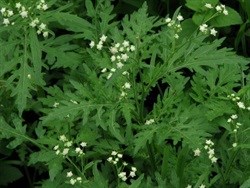
Top stories






More news













Logistics & Transport
Maersk reroutes sailings around Africa amid Red Sea constraints



The amount budgeted over the next three years is in addition to the R4.2-billion budget to control alien species through the Working for Water Programme.
Invasive alien species are species that have been introduced into an area and are able to out-compete and displace indigenous or useful alien species.
They may be plants, animals or microbes, including diseases, and are widely regarded as among the biggest threats to the productive use of land and water, the ecological functioning of natural systems, the populations' health and the economy.
Environmental Affairs Minister Edna Molewa has warned that pine trees from Europe, Asia and North America that are invading SA's mountain catchments could have unaffordable consequences for water security, as they use far more water than the indigenous plants they displace.
Last week Friday, the department published the amended regulations on Alien and Invasive Species (AIS) in terms of the National Environmental Management: Biodiversity Act.
The AIS Regulations are aimed at preventing the introduction of more species that may be potentially invasive. This includes monitoring the deliberate and accidental introduction of species through airports, harbours, land borders and mail.
Minister Molewa said those who want to bring species into the country will be required to have a risk assessment done to establish the potential harm from introducing the species.
One of the 559 invasive species listed in the Regulations is famine weed (Parthenium hysterophorus), which is an inconspicuous, daisy-like plant from South America that is spreading across northern KwaZulu-Natal.
Famine weed has the potential to invade the driest parts of South Africa and most of Africa. Minister Molewa has warned that neither South Africa's stock nor game species can survive in these invaded areas.
"Crop production will be unaffordable. Allergies and skin lesions in humans will abound and respiratory diseases will worsen. It is truly a Frankenstein plant, an unwanted and relentless gate crasher in our country," she said.
Although still an emerging species in many parts of the country, famine weed is so invasive that it is already classified as Category 1b.
Minister Molewa is, however, optimistic that suitable biological control agents will be found to combat the threat of famine weed.
South Africa currently has tens of thousands of alien species, most of which are not necessarily a problem.
"A relatively small percentage of these have become invasive. Nevertheless, the impact of these invasive species on the country's economy is estimated in the hundreds of billions of rands, and the impact is rapidly increasing.
"The most difficult category is the Category 2 species. These are species that have value, such as plantation trees and fish-farming species, and yet can invade with very negative consequences outside of where they are being utilised," she said.
The department wants to optimise the economic benefits of these species, while minimising the damage they cause. Permits are granted for their utilisation, but they must be controlled outside of what is allowed in terms of the permit.
The minister said that the department is striving to take a balanced approach for species that have value. For example, many invasive gum (Eucalyptus) species from Australia have a negative impact on water, biological diversity and in terms of the spread of wild fires.
Minister Molewa, however, pointed out that Eucalyptus is also an excellent source of wood, shade, beauty and food for bees.
"The regulations make provision for optimising their benefits, whilst curtailing their most negative impacts," said the minister.
She also said the department has accommodated public sentiment by not listing the much-loved jacaranda tree from South America in urban areas, and allowing large specimens within 50 metres of farm homesteads.
"In these urban areas, there will be no control required for the species. It will be as if we are treating urban areas as plantations and the trees can continue to be grown as street trees and ornamental garden trees.
"This is not a battle that government can win on its own. These regulations, coupled with the investments made through the Working for Water programme, have the potential to reverse the cancer of invasions in our country," she said.
SAnews.gov.za is a South African government news service, published by the Government Communication and Information System (GCIS). SAnews.gov.za (formerly BuaNews) was established to provide quick and easy access to articles and feature stories aimed at keeping the public informed about the implementation of government mandates.
Go to: http://www.sanews.gov.za